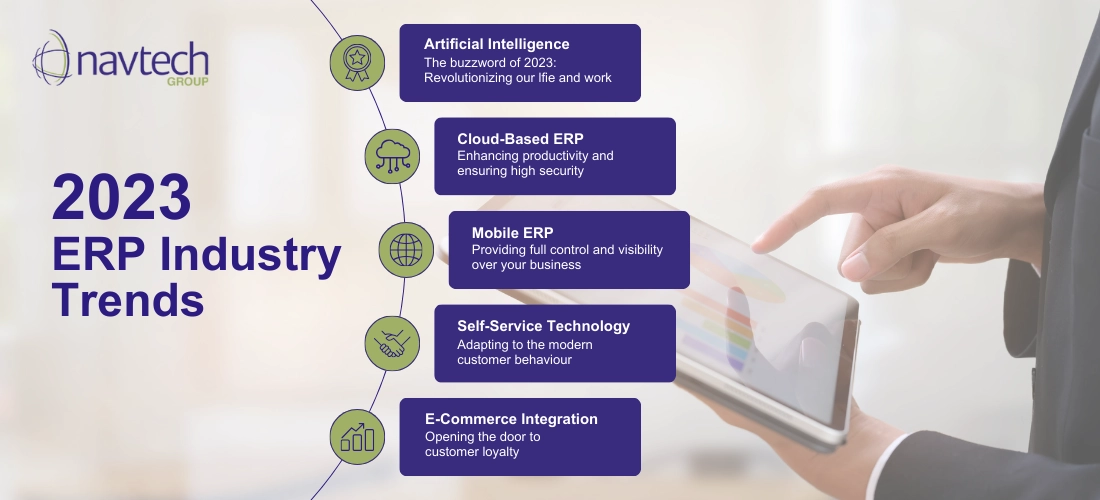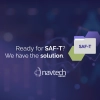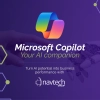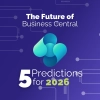LOOKING BACK: TOP 5 TRENDS THAT DEFINED THE ERP INDUSTRY IN 2023
-
AI: the Buzzword of 2023
It is no surprise that Artificial Intelligence is first on the list of significant trends in the ERP industry for 2023. AI enhances ERP systems’ capabilities by analysing huge databases, providing real-time reports, automating workflow processes, and optimizing efficiency which helps businesses reduce costs and streamline operations.
AI easily analyses large volumes of data from various data sources, generates reports, and provides insights that help businesses make data-driven decisions. With these advanced analytics, AI also assists in resource optimization, inventory management, and planning. By keeping track of their performance and market changes, businesses can optimize their offering: add new products, create personalized promo offers, and identify customer trends and behaviour to build loyalty.
AI extends our abilities and gives us a helping hand in various aspects of our work: from mundane tasks such as creating a PowerPoint presentation or writing an email to processes such as sales forecasting and inventory replenishment which would take a great deal of time if done manually. With AI, ERP systems give a new meaning to work productivity and efficiency: everything is just a few clicks away.
This year’s edition of Directions EMEA in Lyon, France paid special attention to the integration of Copilot, Microsoft’s AI tool, into our daily work life and the numerous functionalities, in which Microsoft has been continuously investing and improving in 2023. The AI tool is now available and in use by hundreds of millions of people, making their lives easier and marking a huge advancement in the ERP industry.
In addition to the functionalities already integrated into the Office 365 apps, Microsoft Edge, and Windows, Microsoft is committed to bringing more innovation to Copilot in 2024, such as GPT-4 Turbo for tackling more complex requests; an updated DALL-E 3 model for creating images with higher quality; a Code Interpreter for coding, calculating and data analysis, and many more.
Read more about Copilot: MICROSOFT 365 COPILOT: A NEXT-GENERATION AI TOOL TAILORED TO YOUR BUSINESS’S NEEDS
-
Cloud-Based ERP: Enhanced Productivity and High Security
In 2023, the popularity of cloud-based ERP systems continued to rise. While these systems have traditionally attracted small and medium businesses, a new trend has appeared on the horizon this year: an increasing number of large businesses are shifting to the cloud, particularly in the hotel and hospitality industry. The economic aftermath of the COVID pandemic has accelerated the migration from on-premises to cloud ERP systems, with one of the biggest advantages being the remote working model and data accessibility from anywhere, at any time.
Moreover, an increasing number of large-scale businesses are turning to the cloud due to its cost-efficiency. The traditional on-premises model requires large upfront payments for hardware and infrastructure while cloud systems are based on a subscription model and users pay for what they use.
The advancements, scalability, and flexibility make the cloud well-suited for the needs of larger businesses. Large-scale businesses can adjust their resources in the cloud, ensuring the efficiency of their ERP system and avoiding any unnecessary expenses. The cloud offers real-time analytics and actionable insights that help businesses keep track of their performance and adjust to the dynamic market changes.
In addition, the 2023 tendency of migrating to the cloud is due to its robust security measures and enhanced data protection. Cloud ERP systems have strengthened their measures to reduce the risk of data breaches, cyberattacks and exposure of confidential guest information by adopting new features such as end-to-end encryption, multi-factor authentication and built-in firewalls.
-
Mobile ERP: Remote Control and Visibility over Your Business
There is hardly a person in the world who leaves their home with a phone in their hands. Now envision a scenario where accessing business data is not bound by location and you never lose track of your performance, no matter where you go. This is the future of ERP systems.
As we live in a world of interconnectivity, the mobile approach in ERP brings immense benefits such as convenience, time efficiency, and swift decision-making. With mobile-friendly ERP interfaces, users can navigate the system from any device – computer, tablet, or phone. This maintains connectivity among the team and fosters collaboration and workflow flexibility. Employees can easily communicate and work on projects in real-time, whether they are in the office, at home, or on the go. Having 24/7 access to data gives users consistent control over their business and time to react in dynamic and risky situations.
The rise of mobile ERP systems contributes to the increasing adoption of cloud solutions. Storing data in the cloud and accessing it from anywhere in the world carries great advantages in terms of cost savings and efficiency. It makes businesses more flexible and adaptable to today’s business environment: they embrace innovation to provide their employees with flexibility and give customers personalized experiences.

-
Self-Service Technology: Investing in Your Future
Self-service technology has paved its way into the ERP industry. A lot of supermarket chains have integrated self-checkout, restaurants have invested in self-order kiosks and hotels have also made the step towards workflow automation with self-check-in and keyless room entry. Businesses opt for offering a mix of traditional and self-service technologies to give customers a choice and ensure their satisfaction which is crucial for building loyalty.
Solutions such as LS Retail’s all-in-one management software - LS Central - provide self-service without the need for additional complex integrations. No matter how customers decide to pay or order, the software is the same for all touchpoints. This consistency and automation across the whole business put an end to any anxieties regarding data inaccuracies, inventory management issues, or human-made mistakes.
Whether people have gotten used to avoiding human contact, want to minimize the waiting time at stores, or feel comfortable with using technology for convenience, self-service solutions are making a serious entrance into the ERP industry and opening new doors for bettering the customer experience.
Read more about self-service technology: WHY SELF-SERVICE TECHNOLOGY IS WORTH THE INVESTMENT?
-
E-Commerce Integration: An Innovation that Builds Customer Loyalty
During the pandemic, we observed the rise of online shopping and digitalization in retail as most physical stores were closed. This has become a defining part of the new-generation customers’ behaviour: the preference for a fast innovative solution which is exactly what an e-commerce platform offers. The integration of e-commerce platforms with ERP solutions automates processes such as order shipping and tracking, inventory management, and sales analysis, which enhances productivity and minimizes manual mistakes.
Synchronizing your ERP system with an e-commerce platform fosters business growth and elevates customer experience. It helps you track customer data, preferences, and purchase history, create personalized offers, and improve your services. It is highly beneficial for this digital era to be able to offer a seamless customer experience and adapt to the rapidly changing landscape by investing in an innovative solution. This is what an increasing number of businesses opt for when integrating an e-commerce platform with their ERP: ensuring a faster order and delivery process, creating a loyalty program to retain customers, offering a personalized customer approach, and understanding customer behaviour with the help of real-time reports.

2023 brought many advancements in the ERP industry with an emphasis on productivity, personalization, and cost-efficiency. From AI tools, cloud solutions, and robust security measures to self-service technology, mobile data access, and e-commerce integration, the future of the ERP holds promise for more innovations and seamless customer experiences. As the business landscape and customer behaviour are constantly changing, we have no other option than to adapt and embrace the digital transformation our business needs to stay in line with trends.
Ready for the upcoming digital innovations of 2024? Contact us to learn how you can stay on top of industry trends.







